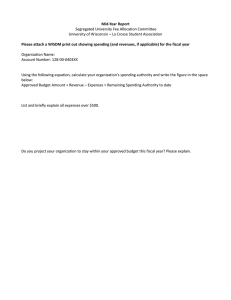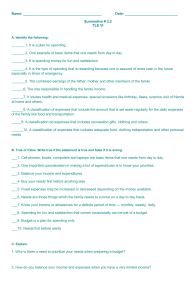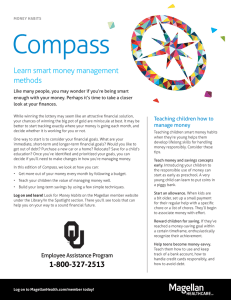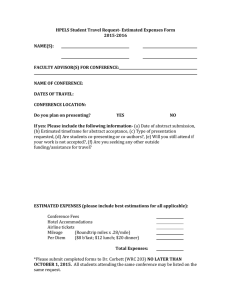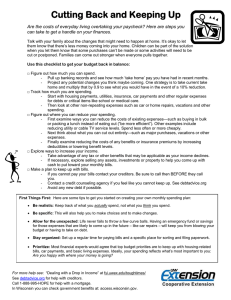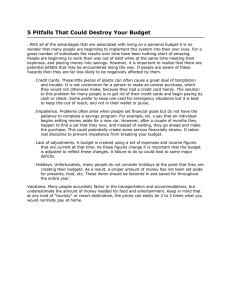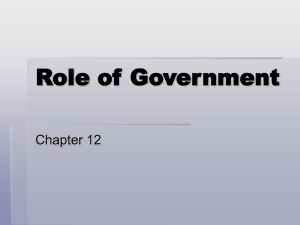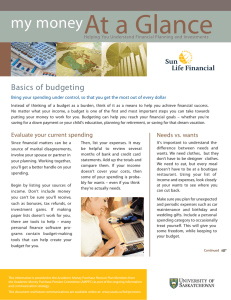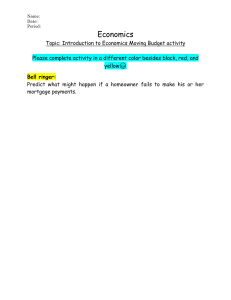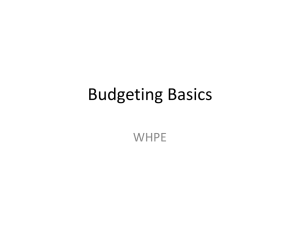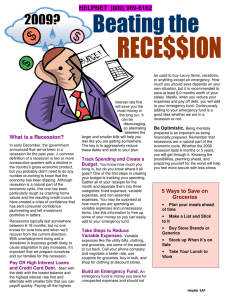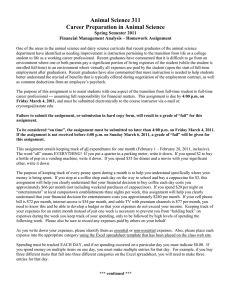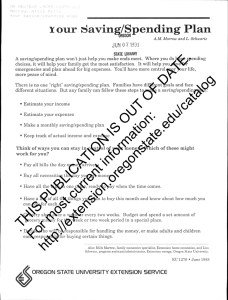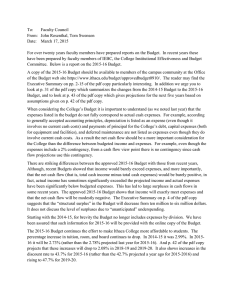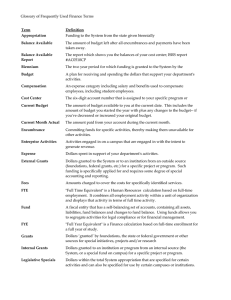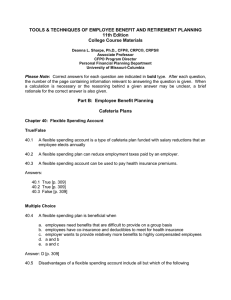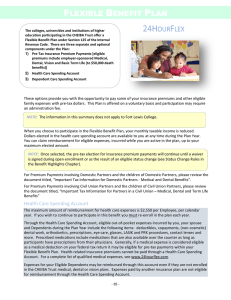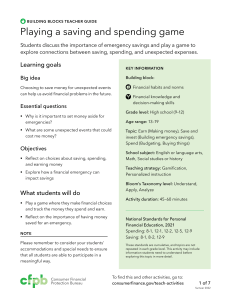Get Your Financial House in Order
advertisement
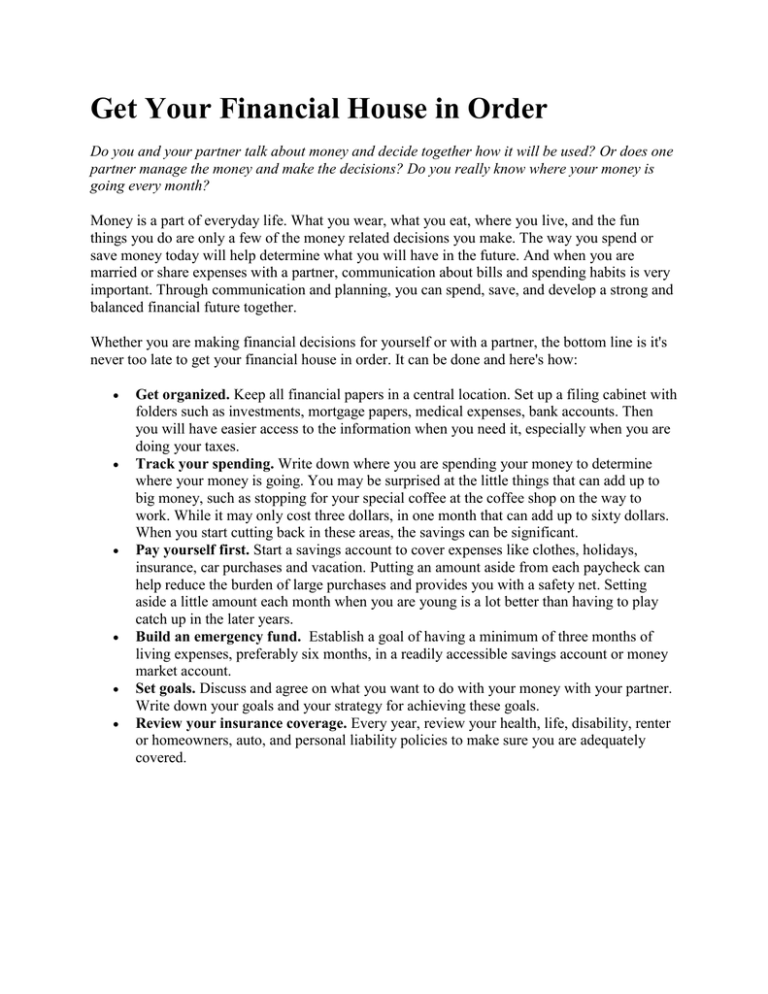
Get Your Financial House in Order Do you and your partner talk about money and decide together how it will be used? Or does one partner manage the money and make the decisions? Do you really know where your money is going every month? Money is a part of everyday life. What you wear, what you eat, where you live, and the fun things you do are only a few of the money related decisions you make. The way you spend or save money today will help determine what you will have in the future. And when you are married or share expenses with a partner, communication about bills and spending habits is very important. Through communication and planning, you can spend, save, and develop a strong and balanced financial future together. Whether you are making financial decisions for yourself or with a partner, the bottom line is it's never too late to get your financial house in order. It can be done and here's how: Get organized. Keep all financial papers in a central location. Set up a filing cabinet with folders such as investments, mortgage papers, medical expenses, bank accounts. Then you will have easier access to the information when you need it, especially when you are doing your taxes. Track your spending. Write down where you are spending your money to determine where your money is going. You may be surprised at the little things that can add up to big money, such as stopping for your special coffee at the coffee shop on the way to work. While it may only cost three dollars, in one month that can add up to sixty dollars. When you start cutting back in these areas, the savings can be significant. Pay yourself first. Start a savings account to cover expenses like clothes, holidays, insurance, car purchases and vacation. Putting an amount aside from each paycheck can help reduce the burden of large purchases and provides you with a safety net. Setting aside a little amount each month when you are young is a lot better than having to play catch up in the later years. Build an emergency fund. Establish a goal of having a minimum of three months of living expenses, preferably six months, in a readily accessible savings account or money market account. Set goals. Discuss and agree on what you want to do with your money with your partner. Write down your goals and your strategy for achieving these goals. Review your insurance coverage. Every year, review your health, life, disability, renter or homeowners, auto, and personal liability policies to make sure you are adequately covered.
